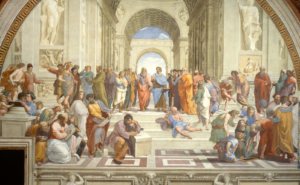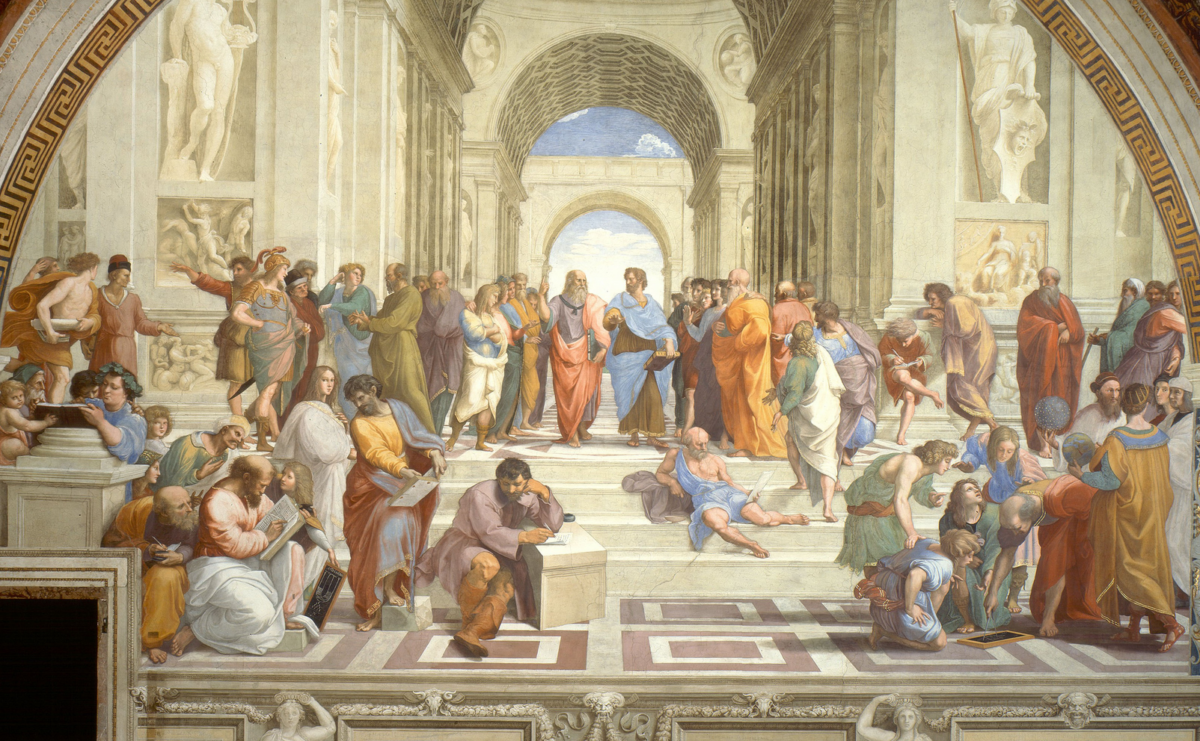This is part four of a ten-part series on coping with disinformation. For part three, visit Ask Why.
In an ideal world, we’d all be extremely well-informed. We’d have the time and leisure to read up on issues and examine different sources, educating ourselves and coming to informed decisions about everything from local politics to global events.
In the real world, we all have jobs, kids to take care of, dogs to walk, bills to pay, dinner to make… none of us are Greek scholars, lounging around in togas all day, philosophizing over tumblers of retsina.

So we have to put our faith in others to do the work of evaluating sources for us. That’s why mainstream media works: journalists are paid to do their homework and check their sources so you don’t have to. Unfortunately, mainstream journalism is dying. Newsrooms are shrinking, and investigative journalism is becoming an endangered species.
We’re also in an age when all the information in the world is at your fingertips. Unfortunately, that also means all the disinformation in the world is at your fingertips. That’s why asking where someone’s getting their information from is more important than ever.
A wedge-shaped conspiracy
A good example is Pizzagate, the conspiracy theory that senior Democrats such as Hillary Clinton were secretly operating a pedophilia ring out of the basement of a Washington pizza restaurant. Unfortunately, the restaurant in question doesn’t have a basement, which should have been the first clue for anyone examining the theory that maybe it wasn’t totally factual.
More broadly, the sources for the conspiracy tend to be marginal (such as anonymous Twitter accounts), while the ones debunking it tend to be established mainstream media. All other things being equal, you’d be well advised to pay more attention to established media such as the New York Times than an anonymous Twitter account. That doesn’t mean the New York Times is infallible, or that anonymous Twitter accounts are necessarily wrong. It just means that the balance of probabilities would indicate the world’s largest newspaper is less likely to be making crazy stuff up than an information channel anyone can create in 10 seconds of their spare time is.
Regrettably, criticizing mainstream media simply because they’re mainstream, has become a convenient shortcut to delegitimize them and elevate some very strange ones in their place.
What’s your source?
That’s why it’s important to ask where someone’s getting there information. Doing so has the added benefit of depersonalizing a confrontation with someone operating under the influence of disinformation. It’s less of a direct confrontation when you call into question someone’s sources than it is when you call into question their beliefs.

